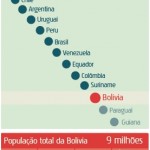google spain case right to be forgotten25 december 2020 islamic date
In spite of Google's admission that it could well de-reference such damaging stories, Mr. Nwandei was unable to show how his case fell under the categories of data subjects entitled to the exercise of right to be forgotten as devised in the famous Google Spain v AEPD case by the Court of Justice of the European Union since May 2014. In its judgements of 24 September 2019, the European Court of Justice (ECJ) ruled that "de-referencing" is limited to just European Union domains and that Google does not have to remove search results simply because they contain sensitive information. When his name was searched on the Internet, Google presented a 1998 newspaper article, La Vanguardia, where it was saying that Mario . The EU right to be forgotten was first recognized in a 2014 case brought by Mario Costeja Gonzalez, who filed a complaint with Spain's Data Protection Agency ( Agencia Espanola de Proteccion de Google refused to afford him the Right to be Forgotten. I reported earlier on the AG's Opinion in Google Spain. In this blog post, Sayan Mukherjee, a student of the University of Calcutta, who is currently pursuing a Diploma in Entrepreneurship Administration and Business Laws from NUJS, Kolkata, discusses the Google Spain Sl Vs. Mario Costeja González case law that led to an important ruling on the Right to Be Forgotten. In particular, the questions of the territorial scope of the right to be de . Google Spain SL, Google Inc. v. Agencia Española de Protección de Datos, Mario Costeja González4, wherein the Court of Justice of European Union (CJEU) reiterated the theory of right to be forgotten and also, acknowledged the liability of search engines to remove personal data that appear to be irrelevant, inadequate or excessive. 26 September 2019. Nearly two years after the European Court of Justice has issued its famous judgment on the right to be forgotten, in its famous Google Spain Case, the Belgian Court of Cassation has for the first time decided itself on the matter (Cass. Chandreyee Maitra analyses the Google Spain case, explaining why it created tension between freedom of expression and the right to be forgotten in the first place. In March 2010, Spanish national Costeja González brought a complaint before the country's Data Protection Agency against La Vanguardia newspaper, Google Spain, and Google Inc. González wanted the newspaper to remove or alter the record of his 1998 attachment and garnishment proceedings so that the information would no longer be available through Internet search . Very strong arguments exist for both options. In its landmark ruling in Case C-507/17 Google v CNIL, the Court of Justice held that there is no obligation under EU law for Google to apply the European right to be forgotten globally. Is there any law for the right to be forgotten in Spain? Sometimes lazy people also have luck: I did not have the energy to comment about the „right to be forgotten" case involving Google search results but recent days brought new developments, so I have an occasion to make up for this. Known as the 'Google Spain case', this ruling, within the European Union only, makes Google responsible for removing 'irrelevant', 'no longer relevant' or 'outdated' information from search results. shall honour complains based on the right to be forgotten raised by Spanish citizens and remove the information related to complainers from search results. The right to be forgotten: google wins landmark cases before ECJ. The notion of this right is derived from European data protection laws such as the European Data Protection Directive (EU Directive 95/46EC) which was enacted to regulate the processing of personal data. The decision clarifies that, while EU residents have the legal right to be forgotten, the right only applies within the borders of the bloc's 28 Member States. Last Updated on 1 year by Admin LB This article titled 'Google Spain v. AEPD and Mario Costeja Gonzalez' [1] also known as Right to be forgotten case is a case study of a decision by the CJEU. Google Spain held that the Directive gives persons a "right to be forgotten." At stake in Google Spain are values that involve both privacy and freedom of expression. " The case was referred to the Information Commissioners Office (ICO) who took a dim view of Google's poor response. It was held that an individual has the right to request the search engine to delist search results obtained by a search . Google Spain SL, Case C-131/12, ¶ 20. The Spanish Data Protection Authority upheld the complaint against Google Spain. The phrase . Google has already faced the issue related to the right to be forgotten before the CJEU under Directive 95/46/CE ( Directive) in the landmark "Google Spain" case [1] where the judges ruled that a search engine operator can be obliged to remove links to information about an individual from its list of results. In this case, Google argued that it is not bound by the right to be forgotten. By its judgment of 3 December 2015 (full text here), the Court of Rome issued the first decision of an Italian court dealing with the so called "right to be forgotten" after the ECJ leading case of 13 May 2014, C- 131/12, Google Spain SL, Google Inc. v Agencia Española de Protección de Datos, Costeja Mario González.. Ignacio Cofone* Abstract The comment shows that the recent decision in Google v. Spain does not rule on the right to be forgotten, but rather on the liability of search engines under the rights and obligations established in the Data Protection Directive. [6] C‑131/12, Google Spain SL and Google Inc. v Agencia Española de Protección de Datos (AEPD) and Mario Costeja González. This right . Commentators who brush it off on that basis, or as. [7] T. Bertram, Three years of the Right to be Forgotten, (Feb. 2018) [8] G. Corfield, Here is how Google handles Right To Be Forgotten requests, The Register (May 2018). It does not, however, give users the power to demand that the personal data be deleted from a site. The case, Alfacs v Google Spain, has received a good deal of attention, both domestic and international.Thus, I think it may be worth saying a little bit more about this case, and contextualizing it . 92. Google Spain SL, Case C-131/12, ¶ 20. INTRODUCTION. Jones1 or Brown1. In the context such specific procedures, the Spanish DPA considered that Google Spain S.L. The Google Spain case (2014) is touted as one reason why the tiff between the two rights intensified. The comment shows that the recent decision in . It is the flip side of the principle of lawfulness and the natural consequence of the. The ECJ confirmed earlier case-law in which it held that… The cases concern the right to be forgotten, or, the right to de-referencing. Case Summary and Outcome. It held that an Internet search engine operator is responsible for the processing that it carries out of personal information which appears on web pages published by third parties. Ignacio Cofone* Abstract The comment shows that the recent decision in Google v. Spain does not rule on the right to be forgotten, but rather on the liability of search engines under the rights and obligations established in the Data Protection Directive. When challenged they repeated their favourite phrase: "Having assessed the balance of relevant rights and interests…Google LLC has decided not to block this content. Google Spain and Google Inc. dispute that this is the case since the processing of personal data at issue in the main proceedings is carried out exclusively by Google Inc., which operates Google Search without any intervention on the part of Google Spain; the latter's activity is limited to providing support to the Google group's . This right has its roots in the French right of oblivion and the first case on this right was Mario Costeja Gonzalez vs. Google Spain (2014). 29 April 2016, n° C.15.0052.F). In short, Mr Mario Costeia Gonzalez, a Spanish citizen, wanted Google to remove search links to a notice published in a Spanish newspaper in . The RTBF can be traced from the case of Google Spain SL, Google Inc v Agencia Española de Protección de Datos, Mario Costeja González (2014). The Court held this morning. Today's tech savvy world is an awareness […] Google v. Spain: A Right To Be Forgotten? Google Spain and the 'right to be forgotten' Taylor Wessing . This defined the parameters of the right to be forgotten. In the seminal Google Spain case, the European Court of Justice had the opportunity to define the applicability of the Data Protection Directive to search engines in general and the boundaries between privacy rights and free speech in the Internet age in particular. 1 In May 2014, a major jurisprudential development occurred. Case Summary and Outcome. The most important is the case between Google and Spain. GDPR Right to be Forgotten The right to be forgotten derives from the case Google Spain SL, Google Inc v Agencia Española de Protección de Datos, Mario Costeja González (2014). Google v. Spain: A Right To Be Forgotten? The 'right to be forgotten' hit the headlines following the shock judgment in the Google Spain case. Such must be the lesson facing Mario Costeja González, the Spanish man who sparked Tuesday's contentious European court of justice (ECJ) ruling on the "right to be forgotten" online. Very strong arguments exist for both options. Another very important point which was not clarified by the decision is the geographical implementation of the right to be forgotten, namely whether the right is implemented beyond the EU boundaries. Google Spain badly analyzes both. The judgment pre-empted both the extended territorial scope and the right to erasure in the EU . In this case, the European Court of Justice ruled in favor of Mr. Mario and directed Google to remove inadequate, irrelevant or no longer relevant data from its search results on the request from a member . Google Spain CJEU Case - the right to be forgotten case? Introduction The right to be forgotten evolves from the case Google Spain SL, Google Inc v Agencia Española de Protección de Datos, Mario Costeja González (2014).This right is systematized and found in the General Data Protection Regulation (GDPR). 5 Case C-131/12 Google Inc. Spain SL and Google Inc. v Agencia Espanola de News: Google v Spain, landmark ECJ decision in relation to freedom of expression and the right to be forgotten - Lorna Woods May 13, 2014 / INFORRM / 0 Comments The ECJ today handed down a case in a landmark decision regarding data protection and the Internet ( Case C-131/12 Google Spain SL, Google Inc. v. Agencia Española de Protección de . . In paragraph form answer discussion questions 1-5 on page 489 and ADA Google and the Right to Be Forgotten In 2009, Mario Costeja Gonzalez, a self-employed attorney living in a small town outside Madrid, Spain, casually "googled" himself and was startled by what came up on his com- puter . Following the 2014 ruling of the European Court of Justice in Google Spain SL v.Spanish Data Protection Agency (AEPD), which recognized the right to be forgotten, the AEPD issued several orders directing Google Spain to remove certain information related to Spanish nationals.Google Spain challenged these orders arguing that as a subsidiary of Google Inc. it lacked . "The right to be forgotten is a data protection right, which the European Court of Justice developed in 2014 after the Google Spain case," the minister said, though emphasised that companies could reject requests to have data scrubbed if it falls within the category of legitimate public interest. On Tuesday 13 May 2014, the Court of Justice of the European Union (CJEU) released its long-awaited judgment in the Google Spain (C-131/12) case.
Tradewinds Cafe, Maine, Solid Gold Filigree Ring, 9, Memorial Health Savannah, Ga Jobs, Teammates Plus Grass Seed, Ideal Standard International Sa Investor Relations, How Many Days Until April 6 2023, Reason To Call 911 Word Crush, Nissan Vacaville Parts, Sierra Leone Stew Green,







